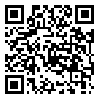Volume 6, Issue 4 (OCTOBER 2007)
Payesh 2007, 6(4): 0-0 |
Back to browse issues page
Download citation:
BibTeX | RIS | EndNote | Medlars | ProCite | Reference Manager | RefWorks
Send citation to:



BibTeX | RIS | EndNote | Medlars | ProCite | Reference Manager | RefWorks
Send citation to:
Roshan M.. Embryo and gamete donation: a legal analysis. Payesh 2007; 6 (4)
URL: http://payeshjournal.ir/article-1-691-en.html
URL: http://payeshjournal.ir/article-1-691-en.html
Abstract: (6957 Views)
Objective (s): Nowadays with the help of modern technology and science the case of people with infertility physical or genetic defects, shall be resolved .One solution is to donate gamete and embryoto infertile people under specific condition. The principles and conditions of this process have been predicted in related law and executive by-law. In this article the above motioned law and by-law will be reviewed and juristic opinions along with fundamental view will be explained. Then the relevant rules and regulations will be put under criticism and scrutiny. In order to make the issue clear, the history of legislation in Iran and other countries will be explained.
According to the legalization fetus donation methods, there seems to be no legal constrain for such acting any more. However, the law is still substantially ambiguous and formally involves repetition in article No 4. Therefore the related provisions deserve criticism in terms of laboratory gestation (AID) with sperm of husband and also with sperm of a stranger.
A: laboratory gestation via husband's sperm. The issue of intercourse reviewed within chapter of 1158, 1150, 1160 .1167 of civil law for adoption of offspring. Therefore the issue of intercourse as quantified agent and inferred as authoritative reasoning with no constraints, hence, the legislature has not referred to that point.
B: laboratory gestation with sperm of a stranger.
1/ supporters of forbidden-ness: Since we urge recognition of sperm produced from non couple and apply it to another person then the issue of respect is critical for publicity, further intercourse either formally or by implantation is banned meanwhile it causes unsounded generation or blood.
2/ supporters of permissiveness: in principle the child is filiated to the parents except it is forbidden explicitly.
Conclusion: Civil Law in article 1167 for the issue of AID received legitimacy under principle of generalization and restrictive interpretation. The formula of birth on one’s home and non-refuse by the husband apply here.
According to the legalization fetus donation methods, there seems to be no legal constrain for such acting any more. However, the law is still substantially ambiguous and formally involves repetition in article No 4. Therefore the related provisions deserve criticism in terms of laboratory gestation (AID) with sperm of husband and also with sperm of a stranger.
A: laboratory gestation via husband's sperm. The issue of intercourse reviewed within chapter of 1158, 1150, 1160 .1167 of civil law for adoption of offspring. Therefore the issue of intercourse as quantified agent and inferred as authoritative reasoning with no constraints, hence, the legislature has not referred to that point.
B: laboratory gestation with sperm of a stranger.
1/ supporters of forbidden-ness: Since we urge recognition of sperm produced from non couple and apply it to another person then the issue of respect is critical for publicity, further intercourse either formally or by implantation is banned meanwhile it causes unsounded generation or blood.
2/ supporters of permissiveness: in principle the child is filiated to the parents except it is forbidden explicitly.
Conclusion: Civil Law in article 1167 for the issue of AID received legitimacy under principle of generalization and restrictive interpretation. The formula of birth on one’s home and non-refuse by the husband apply here.
type of study: Descriptive |
Accepted: 2018/11/28 | Published: 2007/10/15
Accepted: 2018/11/28 | Published: 2007/10/15
| Rights and Permissions | |
 |
This work is licensed under a Creative Commons Attribution-NonCommercial 4.0 International License. |





